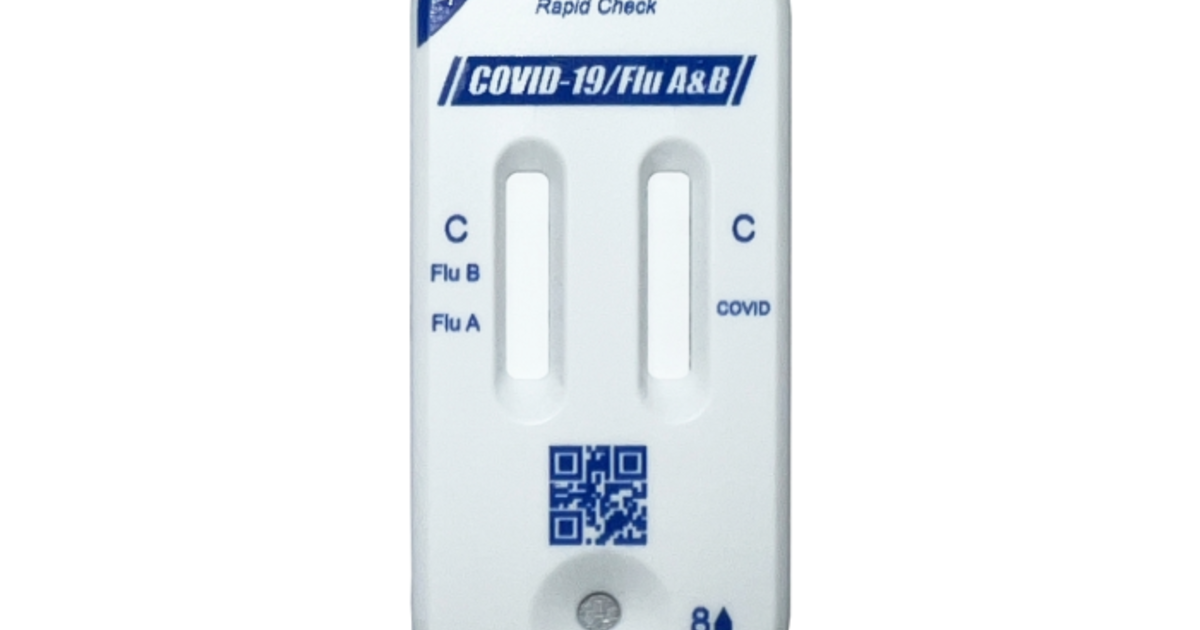The Food and Drug Administration (FDA) is making it easier for individuals to simultaneously test themselves for COVID-19 and the flu at home. This week, the agency authorized Healgen Scientific’s Rapid Check COVID-19/Flu A&B Antigen Test for home use without a prescription. While other at-home combination tests that can detect both COVID-19 and influenza already exist, they are currently available only under emergency-use authorization. The Healgen test is the first combined home COVID and flu test authorized to be marketed outside emergency use. This is a significant development as it allows for convenient and readily available testing for both viruses, providing valuable insights into an individual’s health status.
Convenience and Accessibility for Home Testing
The FDA’s decision to authorize the Healgen test for over-the-counter use provides greater accessibility for home-based testing for both COVID-19 and influenza. This authorization means that individuals no longer need to rely on a healthcare provider or visit a clinic to obtain these tests, simplifying the process and enhancing convenience.
Easier Testing Experience
The home-based test provides a streamlined experience, enabling individuals to conduct testing in their homes without the need for medical expertise. The procedure is straightforward, using a nasal swab sample to detect the presence of proteins associated with SARS-CoV-2 (the virus that causes COVID-19) and influenza A and B.
Faster Results
The rapid antigen test offers results within approximately 15 minutes, providing quicker insights into an individual’s health status compared to traditional methods. The fast turnaround time enables individuals to take prompt action based on the test results, whether it’s seeking further medical evaluation or self-isolating to prevent potential transmission.
Enhancing Public Health Measures
The availability of readily accessible home-based combination tests plays a crucial role in promoting public health measures by allowing individuals to monitor their health status, detect possible infections, and take appropriate action.
Early Detection and Isolation
Early detection of both COVID-19 and influenza through home testing enables individuals to self-isolate promptly and prevent potential transmission to others. Early isolation measures can effectively curb the spread of these viruses within communities and help mitigate outbreaks.
Informed Decision-Making
Having readily available test results empowers individuals to make informed decisions about their health and safety. Whether it’s seeking medical guidance from a healthcare provider, adjusting their daily routines, or adopting precautions, access to accurate and timely testing information plays a critical role in protecting individuals and the wider community.
Understanding Test Limitations and Potential for False Negatives
It is crucial to acknowledge that rapid antigen tests, like the Healgen product, generally have lower sensitivity than molecular tests. This implies that there is a possibility of false negative results, meaning the test might not detect the virus despite its presence.
Considerations for Continued Symptoms
The FDA emphasizes the importance of following up with a healthcare provider if symptoms persist even after a negative test result. Despite a negative test, individuals experiencing symptoms consistent with COVID-19 or influenza should consult with a medical professional to receive appropriate guidance and potentially undergo further testing with more sensitive methods.
Ensuring Accurate Results
The accuracy of rapid antigen tests relies heavily on proper swab collection and sample handling. The FDA recommends individuals follow the instructions provided with the test kit meticulously to ensure reliable results. Adhering to the prescribed procedures minimizes the risk of inaccurate outcomes and helps maximize the effectiveness of home-based testing.
Takeaway Points
The FDA’s authorization of Healgen’s combined COVID-19 and flu home test signifies a significant step towards enhanced accessibility for home-based testing. This development empowers individuals to take proactive measures in monitoring their health, promoting early detection, and facilitating informed decision-making. However, it’s important to understand the limitations of rapid antigen tests, including the potential for false negatives. Continued monitoring and communication with healthcare providers remain essential, particularly if symptoms persist despite a negative test result.




